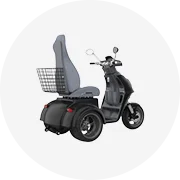Popular in your industry













































































Related Searches:


































































































































































Top categories
About nev electric vehicle
Introduction to NEV Electric Vehicles
The landscape of transportation is undergoing a significant transformation with the advent of NEV electric vehicles. These vehicles represent a class of transportation that does not rely on traditional combustion engines, offering a cleaner alternative for mobility. The category encompasses a variety of models, each designed to meet the diverse needs of the modern consumer.
Types of NEVs
NEVs come in several forms, primarily categorized into pure electric, plug-in hybrid, and fuel-cell vehicles. Each type offers distinct features, from the pure electric's battery-only operation to the plug-in hybrid's combination of battery and internal combustion engine, and the fuel-cell's use of hydrogen to generate power. This diversity ensures a range of options for consumers with different preferences and use cases.
Applications and Usage
The application of NEV electric vehicles spans various sectors. In urban settings, they serve as personal transportation, reducing the carbon footprint of daily commutes. Commercially, electric cargo trucks and buses are increasingly adopted, contributing to a greener logistics industry. The adaptability of NEVs to different environments makes them a versatile choice for both personal and commercial use.
Features and Materials
NEVs are engineered with advanced features such as regenerative braking systems, efficient battery management systems, and innovative infotainment interfaces. The materials used in their construction, such as lightweight composites and advanced alloys, contribute to their efficiency and sustainability. These features and materials work in unison to enhance the performance and environmental friendliness of NEVs.
Advantages of Electric Vehicles
The advantages of NEV electric vehicles are manifold. They offer reduced emissions, contributing to cleaner air and a healthier environment. The operational costs are generally lower compared to traditional vehicles, as electricity is less expensive than gasoline. Additionally, the maintenance requirements for electric vehicles are often less demanding, owing to fewer moving parts and a simpler powertrain.
Future of NEVs
The future of NEV electric vehicles is promising, with continuous advancements in technology leading to longer ranges, faster charging times, and more accessible price points. The integration of renewable energy sources, like solar power, into the design of NEVs is also paving the way for a more sustainable transportation ecosystem.
Exploring the selection of NEVs on a global platform connects potential buyers with a variety of options, catering to the growing demand for environmentally friendly and efficient vehicles. As the industry evolves, the role of NEVs in shaping the future of transportation becomes increasingly significant.


























